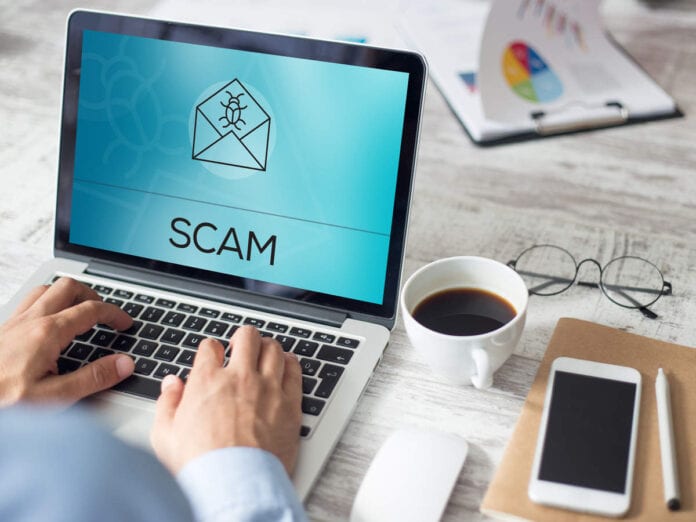Never send money to strangers even if they seem like legitimate individuals.- Keep your credit card information to yourself at all times.
- Always double check anyone who gets in touch with you and asks for money.
Anti money laundering experts from Kyros have compiled a list of the most common scams when it comes to P2P payments, and they offer some practical advice on how to best protect yourself and your money.
One of the most popular ways of making purchases online is via Peer-to-Peer Payments (P2P). Essentially, these kinds of payments allow customers to make transfers using debit cards, credit cards and bank accounts through websites or apps such as PayPal, Venmo, Apple Pay, and many others.
Although P2P payment practices are usually safe and harmless, it’s not a rare occurrence to run into scams and fail to notice that they are, in fact, scams. Scammers have become very convincing over the years, and it can be really difficult to spot one if you have no prior experience in this field.
But worry no more, because we’re here to tell you how to spot payment scams and how to avoid them if you happen to come across one. So, buckle in and let’s see what common scams people tend to overlook, as well as what to do and what not to do in such situations.
The Most Common Scam Scenarios
- If you ever get alerted by a suspicious activity on your account and are asked to transfer money to yourself or “your bank” in order to verify that the account is not frozen, do not make any payments. This is one way scammers steal money from your account. They pretend to call from the bank and make you believe that you’re sending money to yourself, while in actuality, you’re giving your money directly to the scammer.
- Another common tactic used by scammers is to pose as legitimate businesses and when you buy something from them and send them money, you never receive the purchased item. We advise you never to pay for anything in advance, especially if you’re not 100% sure that the business is legitimate.
- Scammers also tend to pretend to work for the fraud department and then they ask you to confirm private information such as your username, password, social security number, etc. Never give away this kind of information because that gives scammers a chance to steal your identity and access your accounts by creating a P2P account using your data.
- There are also situations where scammers tell you that they’ve sent you some money by accident via P2P and ask you to send it back to them. Do NOT do this by any means. Scammers usually use stolen funds which will be discovered as a fraud eventually, and if you send the money back, you can be held responsible for the fraud.
- Never accept a work-from-home position from a company that’s new on the market and sends its employees checks to deposit. Later, they might also ask you to send the deposit to a third party via P2P. All of this is extremely scammy behavior and the check they send you will most likely bounce, so never deposit these kinds of checks.
- Never lend your mobile phone to strangers! This is a very popular tactic used by scammers to steal money from your account using your payment apps. They may ask you to borrow your phone to make an emergency phone call, but don’t fall for that since they’ll probably try and make financial transactions while you’re not looking.
How To Protect Yourself From Scammers
Now that you know what kind of scams to stay on the lookout for, here are some additional tips about DOs and DON’Ts if you want to keep yourself safe from getting scammed via P2P payments.
- Never send money to individuals you don’t know and never let strangers persuade you to send money to anyone, including yourself.
- Never lend your phone to strangers.
- Never share your personal information with anyone who makes contact with you, even if they seem legit. Information such as username, password, social security number, and any other credit card information should be kept private at all times.
- Never use Google to search for your bank’s customer service number, because that can lead you to a scammer’s website. Only use the number provided on your card or bank statement.
- Make sure to confirm the identity of the person you’re sending money to, in case you don’t know them, and be extremely cautious when entering the recipient’s information.
- Enable a multi-factor authentication to verify your identity.
- Only access financial information via a secure WiFi. Never make transactions while using public WiFi because your account can get hacked more easily.
- Set up notifications for any transactions on your account.
- Keep your P2P app updated.
Conclusion
Next time you make online purchases, pay attention to all the things mentioned above and you’ll be less likely to get scammed while using P2P payments. Unfortunately, there are numerous scams to beware of and new ones will emerge as technology develops, so make sure you always double check where your money is going, especially in the case of first time purchases.
If you happen to become a victim of a P2P scam, make sure to notify the P2P platform, contact your bank and the police.
Credit to https://kyrosaml.com/ who provided the above post

| [donate]
| Help keep news FREE for our readersSupporting your local community newspaper/online news outlet is crucial now more than ever. If you believe in independent journalism,then consider making a valuable contribution by making a one-time or monthly donation. We operate in rural areas where providing unbiased news can be challenging. |



















